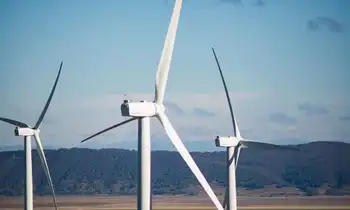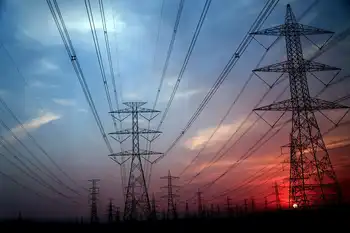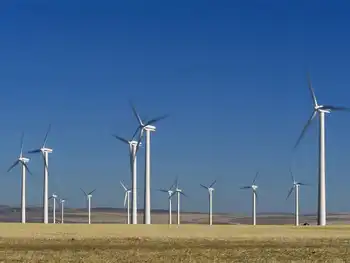European Commission plans for deregulation
Proposals from the EU's executive Commission aim to bring new competition to the sector, challenging entrenched, traditionally state-controlled, and often jealously protected monopolies. But there are fears that the reforms could backfire, contributing to higher prices, at least initially.
Since July this year, EU citizens have had a theoretical right to choose their electricity and gas suppliers.
Following a wide-ranging inquiry last year that highlighted serious shortcomings in energy markets that previous liberalization efforts failed to resolve, the commission hopes to have additional steps adopted by the Council of Ministers next year, to improve access to transmission networks, market transparency and the independence and powers of regulators.
Real, rather than theoretical, freedom of choice is the overriding commission objective. The EU must "ensure that all its citizens can choose their own supplier and be sure that they are getting the best deal," Energy Commissioner Andris Piebalgs said, in September, introducing his plan.
The most controversial proposal is for a complete "unbundling," which would separate control of electricity and gas production and supply from control of the transmission networks. The commission says that a single company should no longer be able to own and control all these activities.
"It's high time to do this"' Ferran Tarradellas, the commission's energy spokesman, said. "Conditions make it absolutely necessary that we do this as soon as possible."
Tarradellas said there were several examples of successful unbundling.
In the liberalized British market, prices are lower than in other EU member states, while in Spain unbundling has led to an investment boom, he said. "Investment has increased in a dramatic way in unbundled markets."
Liberalization has already provided substantial benefits in Nordic countries - Denmark, Finland, Norway and Sweden - and in other liberalized markets including Australia, New Zealand and some parts of the United States, the commission says.
But in the short term customers will have to adjust to tough open-market realities, and the timing of the project may turn out to be unfortunate.
Rising fuel prices and the growing costs of stricter environmental regulations are already putting upward pressure on prices, which traditional government controls could, at least in the short term, help to contain.
Also, many power plants, transmission cables and pipelines will soon reach the end of their lifetime and will have to be either updated or replaced. This will require large investments, the cost of which will almost inevitably be passed on to consumers.
"We think it was a mistake to promise lower prices," said Ulrik Stridbaek, senior policy adviser for electricity markets at the International Energy Agency in Paris, commenting on the commission's marketing of its plan. "It is more important to put the emphasis on efficiency improvements.
"Of course in the long run prices should be lower, but liberalization is not an event, it's a long process," he said.
During that process prices may rise, as they have recently, for reasons that have nothing to so with deregulation, he noted.
"Liberalization did not create higher fuel and oil prices; it did not create the need for new investment," Stridbaek said. "Customers cannot run away from these realities."
"The whole concept of liberalization is to get the price right where it reflects real cost," he said.
In the past, retail pricing "was something thought up by governments, regulators and utilities," he said. "In a liberalized market it's competition that will decide what the fair price is. In competitive markets a fair price is something that reflects the real risks."
The experience of liberalization in the United States provides a cautionary tale. Critics say that prices are higher and rising faster in all states that have deregulated markets compared to those that have kept a regulated system. Real choice has remained elusive for most customers, they say.
Public Citizen, a U.S. nonprofit organization that represents consumer interests, says the impact of deregulation has been dramatic.
The average price of electricity in 14 deregulated states was 52 percent higher than the average price in 36 regulated states by January 2007, according to a report published in May by Tyson Slocum, director of Public Citizen's energy program.
Stridbaek, however, said U.S. price comparisons were distorted by special factors: "There were rate freezes for customers during transitional periods and of course when these come to an end it creates a big shock."
Still, a 2005 study of electricity restructuring from Carnegie Mellon University said that, contrary to arguments put forward for deregulation, research showed no evidence that restructuring and deregulation had "produced any measurable benefit to consumers or to the systems that have restructured."
The study said prices for industrial customers, who were expected to be the main beneficiaries, were not significantly different between deregulated and regulated states.
"Retail competition for residential customers has all but disappeared," it added. "Except where regulated or subsidized, residential supplier switching is at very low levels and alternative suppliers have exited formerly active retail markets."
"Blind faith is unlikely to produce a free market that is competitive," the study concluded. Faith, nonetheless, seems to underpin EU Commission views of deregulation, despite evidence that countries with strong state-controlled energy monopolies, like France, remain determined to protect perceived national interests.
Effective competition will ensure the plan's success, Tarradellas said.
"All network-based systems are more complex, that's why it needs more regulation than other markets," he said. "But the key element of liberalization in energy is that the competitive part of the market, which is generation and supplies, is separated from the transmission, which is the network."
Recent mergers in the European energy industry "are a sign that companies realize what we're trying to do, and we are seeing small companies moving into gaps in the market." The competition authority would keep a close watch on these developments to make sure that competition was not harmed, he said.
Tarradellas said that unbundling and the emergence of a competitive market would provide the basis for improved security of supply by increasing the incentives for investment in power plants and transmission networks, thereby helping to avoid interruptions in power or gas supplies and price surges.
Efficiency gains should also help to protect the environment and result in lower carbon dioxide emissions, he said.
But all these benefits will take time to come through. "The U.S. and Australia have succeeded in setting up a good system but they are still struggling with investment in the transmission grid," said the Stridbaek. "In Europe, investment is not coming forward as it should, especially on the retail side and in cross-border trade."
The commission is addressing that concern by proposing to set up a European Network for Transmission System Operators to increase cross-border cooperation - including cooperation on technical and security standards - and to help co-ordinate future EU-wide network investments.
Energy companies, whether private or controlled, wield enormous power and influence. With that in mind, the commission plan also includes measures to ensure national regulators are truly independent of government and business and have more powers to monitor and ensure market transparency, and to prevent and punish uncompetitive behavior.
The plan also calls for a new agency to be created to fill what the commission sees as a "regulatory gap" caused by weak coordination between regulators in member states. The agency would handle cooperation between national regulators, aiming mainly to lower barriers to cross-border trade. It will be neither a substitute for national regulators nor a European regulator, the commission says.
Will it be enough to guarantee an open market and fair prices for Europe's customers? Only the future will tell.
"It's like in any other market, like bread," said Tarradellas. "The market will decide what is a fair price for electricity."
Related News

Ambitious clean energy target will mean lower electricity prices, modelling says
LONDON - The more ambitious a clean energy target is, the lower Australian wholesale electricity prices will be, according to new modelling by energy analysis firm RepuTex.
The Finkel review, released last month recommended the government introduce a clean energy target (CET), which it found would cut emissions from the national electricity market and put downward pressure on both wholesale and retail prices.
The Finkel review only modelled a CET that would cut emissions from the electricity sector by 28% below 2005 levels by 2030. But all available analysis has demonstrated that such a cut would not be enough to…





